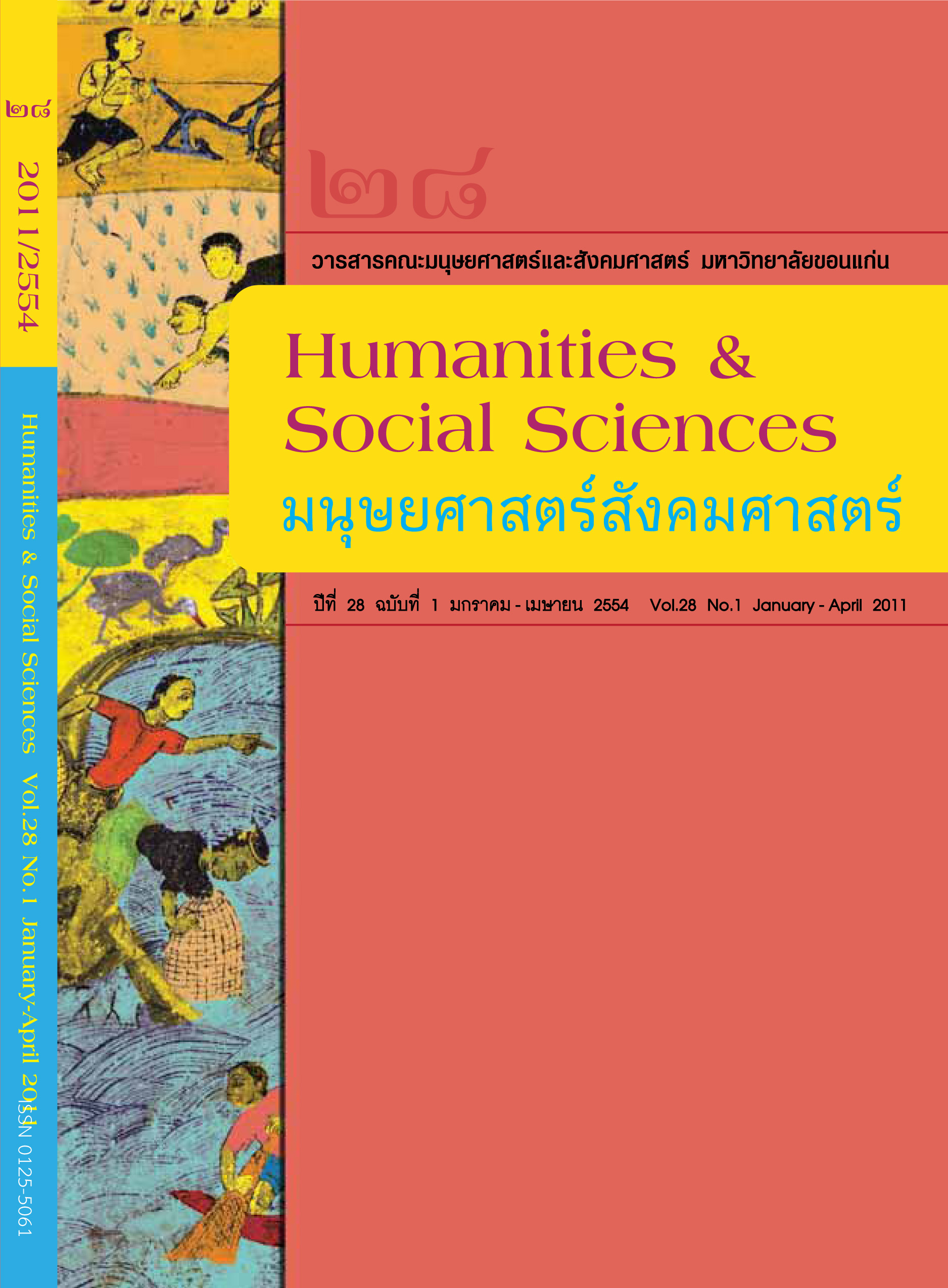การวิพากษ์นโยบายหลักประกันสุขภาพถ้วนหน้า โดยใช้ทฤษฎีความยุติธรรมของจอห์น รอว์ลส์
Keywords:
จอห์น รอว์ลส์, ความยุติธรรม, นโยบายหลักประกันสุขภาพถ้วนหน้า, วิพากษ์, John Rawls, Justice, Universal Health Insurance Policy, CriticizingAbstract
บทคัดย่อ
บทความนี้นี้มีความมุ่งหมายเพื่อวิพากษ์นโยบายหลักประกันสุขภาพถ้วนหน้า โดยใช้ทฤษฎี ความยุติธรรมของรอว์ลส์และศึกษาความเป็นไปได้ในการกำหนดนโยบายหลักประกันสุขภาพถ้วนหน้า โดยประยุกต์ใช้ทฤษฎีความยุติธรรมของรอว์ลส์ โดยเป็นการศึกษาเอกสาร เน้นงานเขียนของรอว์ลส์ที่ว่าด้วย “ทฤษฎีความยุติธรรม” ผู้วิจัยใช้แบบบันทึกเป็นเครื่องมือที่ใช้ในการรวบรวมข้อมูล และวิเคราะห์ข้อมูล โดยการวิเคราะห์เนื้อหา ผลการวิจัยปรากฏดังนี้
1. เมื่อพิจารณาหลักสองประการของรอว์ลส์ กล่าวคือ หลักเสรีภาพ รัฐได้กำหนดให้ประชาชน มีเสรีภาพอย่างเต็มที่ที่จะรับบริการหรือรับสิทธิประโยชน์จากนโยบาย ซึ่งมีการบัญญัติไว้ในกฎหมายหลายฉบับ และหลักโอกาส ประชาชนมีโอกาสในการเข้าถึงบริการ เนื่องจากมีการวางแผนการนำนโยบายไปปฏิบัติ มีหน่วยงานที่รับผิดชอบอย่างชัดเจน และนักการเมืองให้ความสำคัญกับนโยบาย ทำให้ประชาชนมีโอกาสเข้าถึงบริการได้ถ้วนหน้า รัฐต้องการการสนับสนุนทางการเมืองจากประชาชน การดำเนินนโยบายจึงเป็นไปในลักษณะประชานิยมและแก้ปัญหาเฉพาะหน้า นโยบายไม่สอดคล้องกับหลักเสรีภาพและหลักโอกาสของรอว์ลส์ เนื่องจากเสรีภาพและโอกาสที่มีในการรับบริการตามนโยบายเป็นสิ่งที่ไม่เท่าเทียมกันที่แท้จริง โดยนโยบายเอื้อประโยชน์ให้กับคนรวย ซึ่งเป็นคนที่ได้เปรียบในสังคมมากกว่าคนยากจนซึ่งเป็นคนเสียเปรียบในสังคม จึงไม่เป็นไปตามหลักการที่รอว์ลส์กำหนดไว้
2. การกำหนดนโยบายหลักประกันสุขภาพถ้วนหน้าตามทฤษฎีความยุติธรรมของรอว์ลส์เป็นไปไม่ได้ในทางทฤษฎีและทางปฏิบัติ ตามแนวคิดในทางทฤษฎีของรอว์ลส์ในสภาพการณ์เริ่มแรก กลุ่มบุคคลที่ได้รับมอบหมายให้กำหนดนโยบาย อาจไม่เลือกหลักเสรีภาพและหลักโอกาส ตามที่รอว์ลส์ได้กล่าวไว้ก็ได้ แต่อาจเลือกหลักอื่นๆ เช่น หลักความเสมอภาค หลักความเท่าเทียมกัน ฯลฯ เนื่องจากบุคคลมีความเป็นอิสระและมีเหตุผลสูง ส่วนในทางปฏิบัติเป็นไปไม่ได้เพราะรอว์ลส์เสนอให้กลุ่มบุคคลเป็นผู้กำหนดนโยบาย ซึ่งเป็นการกำหนดนโยบายจากบนลงล่าง แต่ในความเป็นจริงการกำหนดนโยบายมีผู้มีส่วนได้ส่วนเสียของนโยบายหลากหลายกลุ่ม มีการต่อรองซึ่งกันและกัน มีเครือข่ายของนโยบาย ชุมชนนโยบายที่หลากหลาย กระแสของ ตัวแบบที่ใช้ในการกำหนดนโยบายเปลี่ยนไปจากการยึดติดกับตัวแบบชนชั้นนำและตัวแบบเหตุผลมุ่งไปสู่ ตัวแบบทางสังคมและการเมืองมากขึ้น ในข้อเท็จจริงนโยบายนี้เป็นได้เพียงส่วนเพิ่มของนโยบาย แต่ละรัฐบาล โดยไม่ได้เป็นการกำหนดนโยบายใหม่ แนวทางการกำหนดนโยบายควรตอบสนองความต้องการและแก้ปัญหาได้อย่างมีประสิทธิภาพ ประสิทธิผล เน้นบทบาทของผู้มีส่วนได้ส่วนเสีย เน้นตัวแบบทางสังคมและการเมือง รวมถึงคำนึงถึงปัจจัยพื้นฐานทางสังคมเป็นหลักในการกำหนดนโยบายโดยสรุป ทฤษฎีความยุติธรรมของรอว์ลส์เน้นหลักเสรีภาพเป็นอันดับแรก หลักอื่นจะมาขัดแย้งกับหลักนี้ไม่ได้ จากนั้นจึงเน้นหลักความแตกต่าง ประชาชนไม่มีเสรีภาพและโอกาสอย่างเท่าเทียมกันอย่างแท้จริงในการเข้าถึงบริการ การนำทฤษฎีของรอว์ลส์มาใช้ในการกำหนดนโยบายเป็นไปไม่ได้ในทางทฤษฎีและ ทางปฏิบัติ ผลงานวิจัยครั้งนี้เป็นประโยชน์ต่อผู้มีส่วนได้ส่วนเสียกับนโยบายทุกฝ่าย
คำสำคัญ : จอห์น รอว์ลส์, ความยุติธรรม, นโยบายหลักประกันสุขภาพถ้วนหน้า, วิพากษ์
Abstract
The purposes of this research were to : 1) criticize the universal health insurance policy (UHIP) that used John Rawls’ justice theory ; and 2) study possibility of formation on universal health insurance policy (UHIP) that used John Rawls’ justice theory. This research was documentary study that focused on John Rawls’ justice theory. The instrument used for collecting data was a form. The collected data had analyzed by content analysis. The research findings were as follows :
1. The Rawls’ principle has 2 items : first, liberty principle that state offer absolutely power to people for receiving the public services or core package of policy this regulated in several law; second, difference principle, people had an opportunity to received the coverage of available public services because public servants had planned an implementation of policy, clear responsible offices, and politicians concentrated on this policy. This implementation was popular policy and facing solve of problem. The policy was not congruous with Rawls’ liberty principle and difference principle because this both principles to received the public services of policy was absolutely inequity that policy promoted to the rich who strengthened more than the poor who weakened in society, so that was not congruous with Rawls’ principles.
2. The formation of the universal health insurance policy (UHIP) was impossible in theory and practice to follow up Rawls’ theory; in theory, the people group who had assigned to form policy, they could not choose the liberty principle and difference principle as Rawls’ offer. But they could choose other principle such as equity principle or equal principle etc. because the person had high independency and reasonableness ; while in practice that was impossible because Rawls’ the people group who had assigned to form policy, this formative process was top-down policy formation, but in real practice of policy formation had various stake holders of policy. They negotiated each other with various policy networks and policy community, including the policy steam had changed from elite model and reasonable model to more social and political model. In fact, this policy was increment of policy that each government had not form a new policy. So, the guideline of policy formation must response to people’s need and efficiency and effectiveness solving the problem, that will concentrate on stake holders, and to use social and political model, including it will realize on social basic factors in formation of policy.
In conclusion, Rawls’ justice theory focused on liberty principle at first, the other principle must not protest this principle. Then, second principle that he focused on was difference principle. The expected people of policy had no real equal liberty and opportunity to receive available public services. Applying theory to policy formation will not possible on both theory and practice. The all stake holders of policy could use the information obtained from the findings of this research.
Keywords : John Rawls, Justice, Universal Health Insurance Policy, Criticizing



